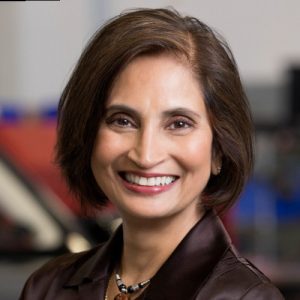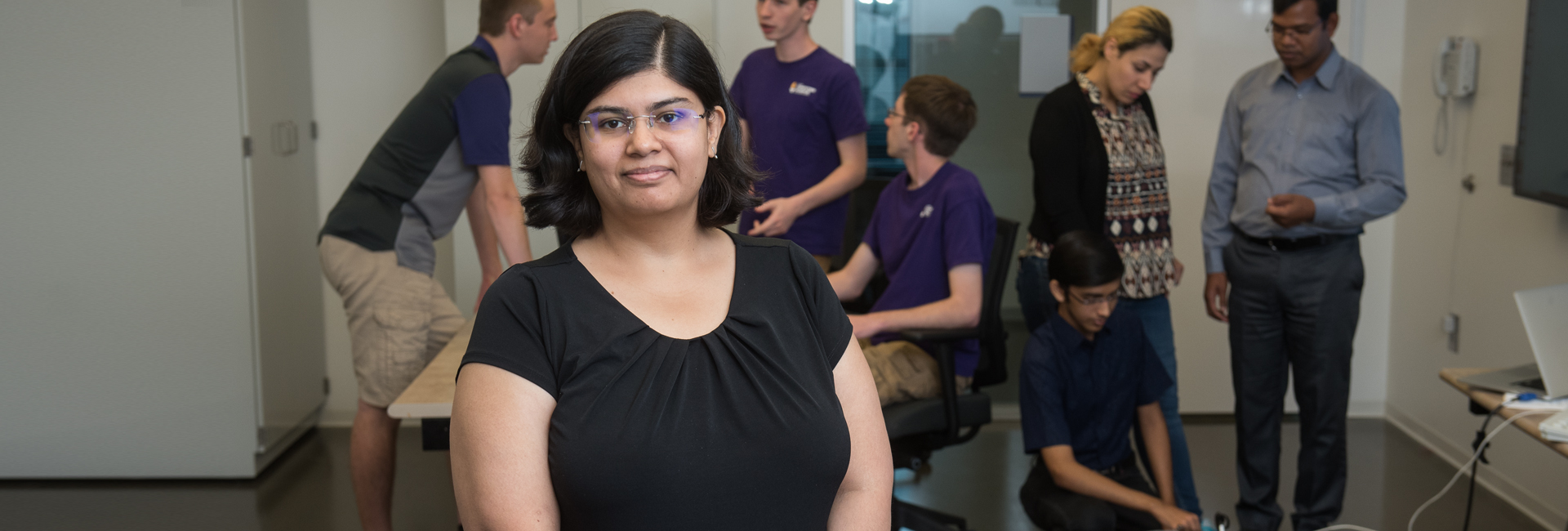(May 24, 2023) Telugu is the fastest growing language in the US, with the community expanding from around 87,000 in 2000 to 644,700 in 2020. With their indomitable spirit, and deep-rooted cultural values, the Telugu diaspora has not only achieved unprecedented success but has also become an inspiring symbol of the Indian diaspora’s triumph. There’s Satya Nadella at the helm of IT bellwether Microsoft, Adobe CEO Shantanu Narayen, who also traces his roots to Hyderabad and Aravind Krishna, CEO of IBM – these industry captains reflect the successes of the Telugu diaspora in the US. These visionary leaders, driven by their heritage and fuelled by their relentless pursuit of excellence, have broken barriers, redefined success, and emerged as trailblazers in the tech industry.
The list of successes from the Telugu community doesn’t end there. In 1981, Rao Remala became the first Indian to be hired at Microsoft. Turing Award-winner Raj Reddy, who served on the faculty of Stanford University and Carnegie Mellon for over five decades, is hailed as one of the early pioneers of artificial intelligence. More recently, Hyderabad-born Aruna Miller made historic strides in politics in 2022, when she became the first Indian-American to be elected as Lieutenant Governor in the state of Maryland. Attorney Vijaya Gadde is one of Twitter’s best-known employees and served as the general counsel and head of legal, policy and trust at Twitter. Sirisha Bandala became the third Indian-born woman in space, when she became part of the Virgin Galactic team. Padmashree Warrior is widely hailed as one of the world’s most influential women in STEM.
Global Indian looks at the trailblazers who have defined the success of the Telugu diaspora, paving the way for the rise of future generations of Indian talent to thrive on the world stage.
Padmasree Warrior
CEO, Fable
Padmasree Warrior arrived in the US with two large suitcases stuffed with textbooks bought in India and went on to become one of the world’s most powerful women in STEM, rising through the ranks at Motorola and CISCO.
Born and raised in a middle-class home in Vijayawada, Andhra Pradesh, Warrior joined Motorola in 1984 and spent 23 years working her way up the company ranks to become its first CTO and female executive vice president. In 2008, Padmasree Warrior joined Cisco, where she became senior vice president of engineering, strategic advisor and chief technology and strategy officer.
After 35 years of service, Warrior moved onto entrepreneurship and founded Fable, a curated reading platform for mental well-being in 2019. She is the President and CEO of the venture and serves on the board of directors for Microsoft, Spotify and Thorn.

Sirisha Bandala
Vice President of Government Affairs and Research Operations, Virgin Galactic
The Indian-origin aerospace engineer and commercial astronaut gained prominence as a member of the Virgin Galactic team and became the third Indian-born woman to venture into space. Born in Guntur, Andhra Pradesh Bandala joined Virgin Galactic, a spaceflight company in 2015. As VP of government affairs and research operations, she has been working on various aspects of the company’s mission to provide commercial spaceflights to civilians.
In 2021, Bandla made history by flying to space aboard the VMS Eve carrier aircraft, as part of Virgin Galactic’s Unity 22 mission. The mission aimed to test the astronaut’s experience and conduct scientific experiments. Bandla and crew conducted research related to plant biology and atmospheric research during the spaceflight. Her journey to space has been celebrated as a significant milestone, particularly for the Indian diaspora and women in STEM fields. “Whenever I looked at the stars, I always wanted to know what was there and the curiosity and urge to explore led me to it,” she said in an interview.
Satya Nadella
CEO, Microsoft
The Hyderabad-born Satya Nadella is one of the best-known members of the Telugu diaspora. Since assuming the role of Microsoft CEO in 2014, Nadella has orchestrated a remarkable transformation within Microsoft, reinventing it as a global leader in cloud computing and cutting-edge technologies, the most recent being the AI powered trendsetting app ChatGPT. As far as his love for his native country is concerned, Nadella said, “I’m shaped by my Indian heritage. My hope is for an India where an immigrant can aspire to found a prosperous start-up or lead a multinational corporation benefitting Indian society and the economy at large.”
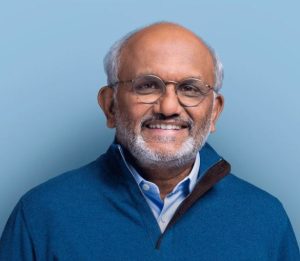
Shantanu Narayen
CEO, Adobe
Shantanu Narayen is one among the celebrated tribe of Indian-origin CEOs shaping the global business world. Under his leadership, Adobe, achieved record revenue and industry recognition for being an inclusive, innovative, and exceptional workplace. For the sixth year in a row, Adobe has been identified as one of the 25 World’s Best Workplaces, while, Narayen has earned himself the title of ‘Top CEO’ on Glassdoor, which is based on employee feedback. “To win in today’s world every business has to transform itself to become maniacally focussed on the customer experience,” Shantanu Narayen remarked at an Adobe Summit.
He maintains a deep love for his hometown, Hyderabad. “If I was growing up right now, there was no way I would be leaving Hyderabad. A lot of opportunity exists in Hyderabad and India,” he said at the TiE summit in Hyderabad.
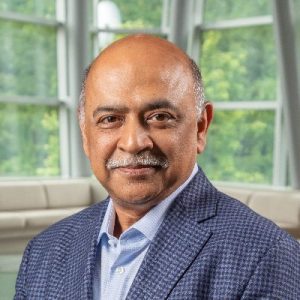
Arvind Krishna
CEO, IBM
During his stint as the CEO of IBM, Krishna’s journey with the tech giant was one of profound evolution. Under Krishna’s stewardship, IBM, has undergone a profound evolution, embracing emerging technologies such as artificial intelligence, cloud computing, and quantum computing.
Born in a Telugu-speaking family in Andhra Pradesh’s west Godavari district, Krishna joined IBM in 1990.
Always batting for India’s growth, the tech leader said, at the ET India Leadership Council, “The 18 months of the pandemic has accelerated digital transformation in India, which is equal to 15 years in the area of digital payments or online commerce or internet banking.”
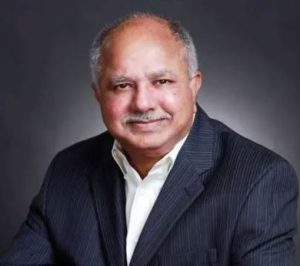
Raj Reddy
Founding director of the Robotics Institute at Carnegie Mellon University
Indian-American Dabbala Rajagopal Reddy, is regarded as an AI pioneer, recognized for his contributions to AI research and his leadership in advancing technology and education. Born in a Telugu family in Katur village of Chittoor district present-day Andhra Pradesh he conducted influential research in speech recognition, natural language processing, robotics, and human-computer interaction, and played a pivotal role in developing the first large-scale speech recognition system.
Reddy’s leadership extends beyond his research achievements. He has spent over 50 years on the faculty at Stanford University and Carnegie Mellon – in the latter, he is also founding director of the Robotics Institute. Under his leadership, the Robotics Institute became one of the world’s premier research centers for robotics and AI, fostering innovation. “Things we couldn’t do ten years ago are now possible due to deep learning,” he said. While it is possible in English, think of a situation when an Indian can speak to the computer in his mother tongue and it can talk back to him. Then, all of a sudden, you are empowering many semi-literate people by expanding their knowledge base.” Reddy is the winner of the Turing Award, the highest honour in computer science.
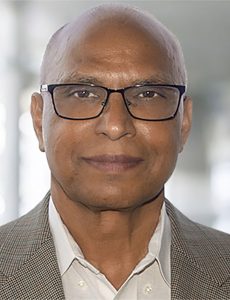
Rao Remala
First Indian to be hired at Microsoft
The former software developer, now angel investor, and philanthropist became the first Indian and one of the first 50 hires at Microsoft in 1981. He was one of the lead developers of the first version of Microsoft Windows. Born in T. Kothapalem village Nagayalanka Mandalam in Krishna district of Andhra Pradesh, Remala went to the US to pursue a PhD at the University of Washington. His story serves as a tall example of the diaspora’s triumph against all odds. “I was born in a very small village, where there was no power, no roads and no running water. It was a very primitive village in that sense,” Remala remarked during an interview of University of Washington’s oral history project.
The engineer went on to architect, develop, and manage Microsoft’s flagship products like Basic, Cobol Compiler, Windows 1.0, Windows 2.0, OLE 1.0, OLE 2.0, Office 95, and Office 97. Now retired, Remala funds startups and a few charitable projects, including a foundation, named after his family, which has built an eye hospital in his village in Andhra Pradesh.
Key Takeaways from achievements and contributions of Telugu diaspora A-listers in tech:
- Resilience and perseverance: Telugu tech leaders have demonstrated remarkable resilience and perseverance in their journeys. They faced challenges, overcame obstacles, and persisted in their pursuit of excellence. Their stories remind us that success often requires determination, grit, and the ability to navigate through adversity.
- Global mindset: They adapt to diverse environments, understand market dynamics and leverage opportunities on a global scale. Their experiences highlight the importance of embracing diversity, seeking international collaborations, and staying attuned to global trends.
- Continuous learning and growth: Remaining curious, embracing new technologies and trends and upgrading skills are crucial to success. These Global Indian journeys emphasize the value of staying adaptable, embracing lifelong learning, and being open to innovation.
- Leadership with purpose: Leadership must come with empathy and the knowledge that one’s position gives one the power to make a positive difference. These leaders inspire us to lead with purpose, drive meaningful change, and use technology to address pressing challenges.
- Cultural pride and heritage: While they have their adopted homes, these Global Indians maintain strong connections to their cultural heritage and ethos, incorporating the principles of collaboration, empathy, and inclusivity into their leadership styles.


